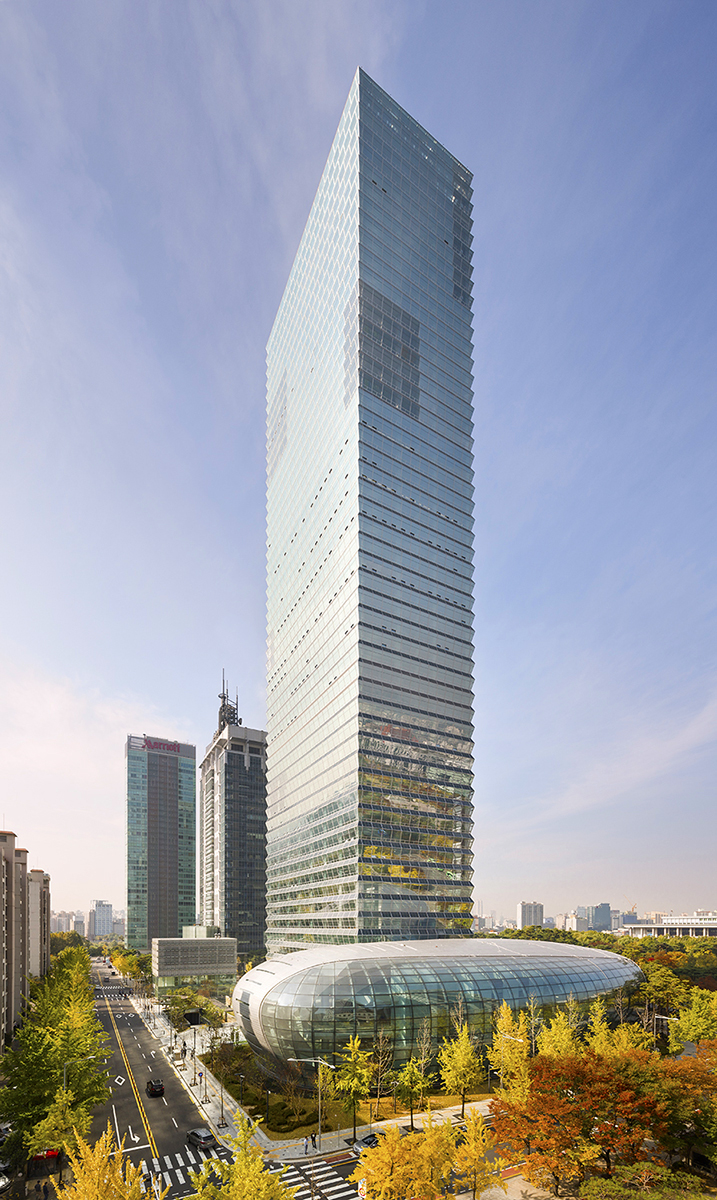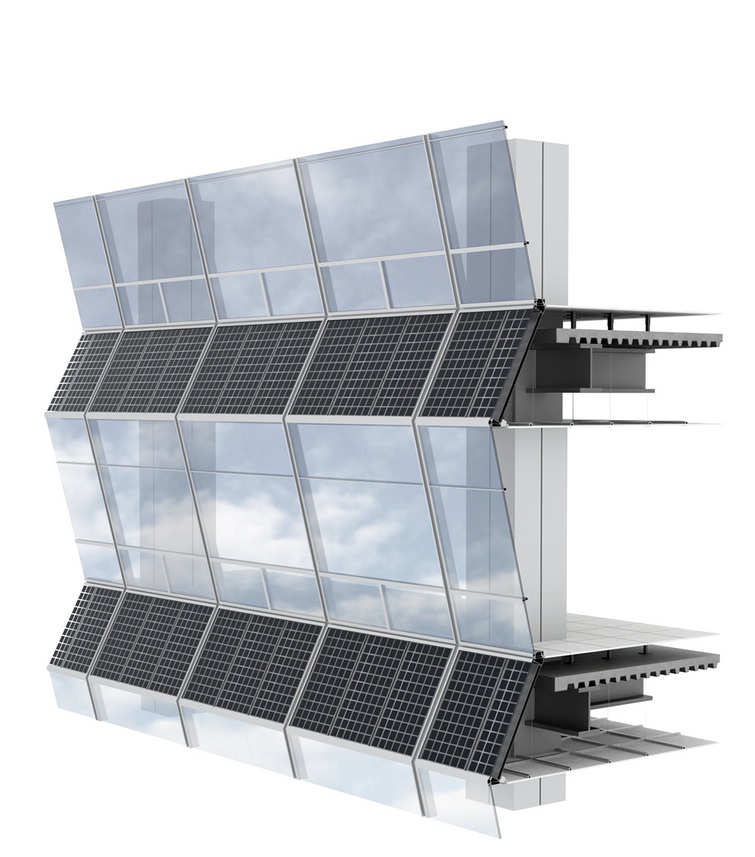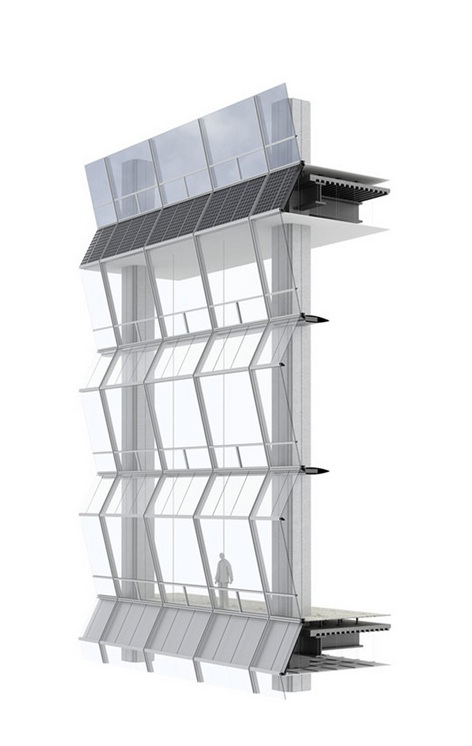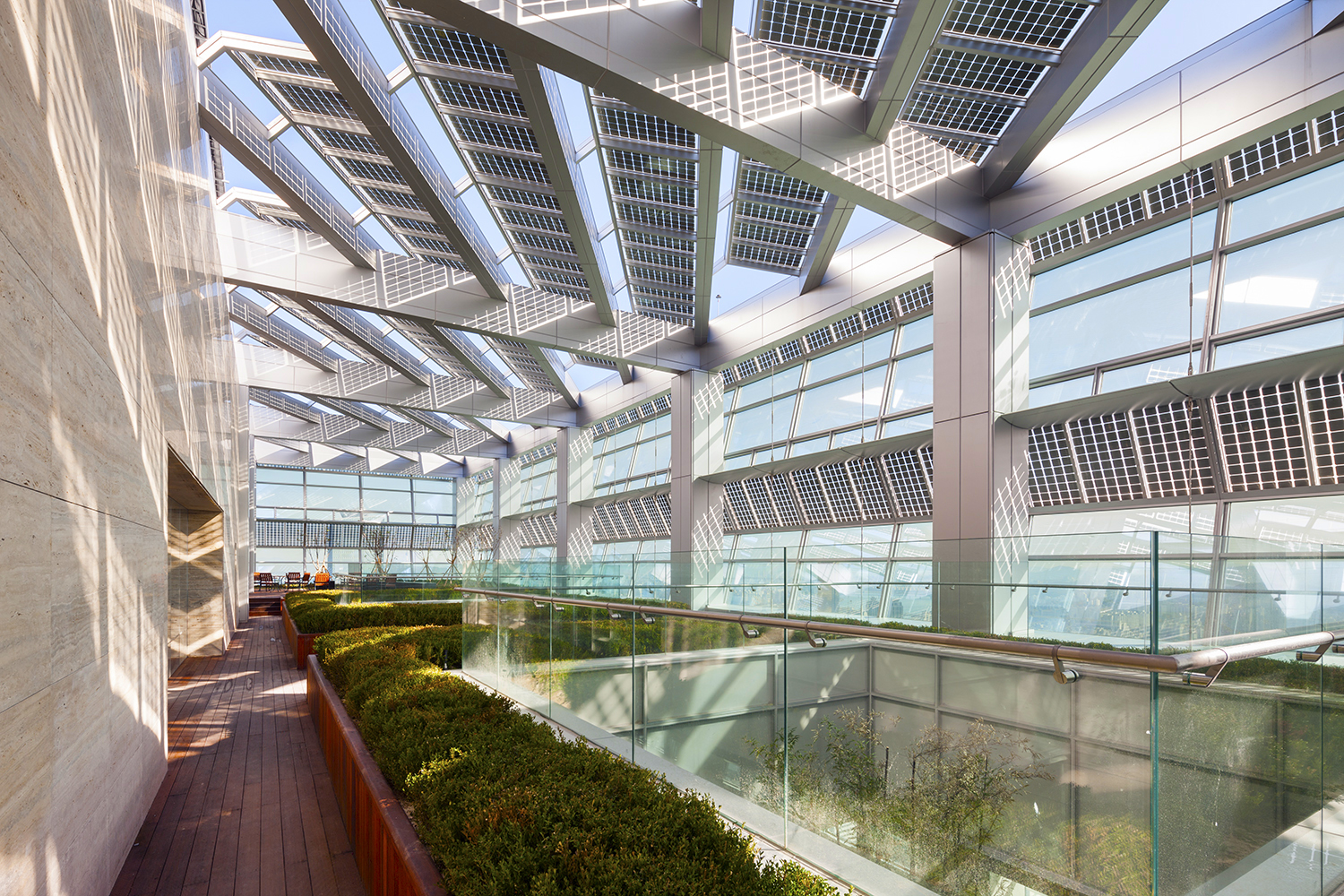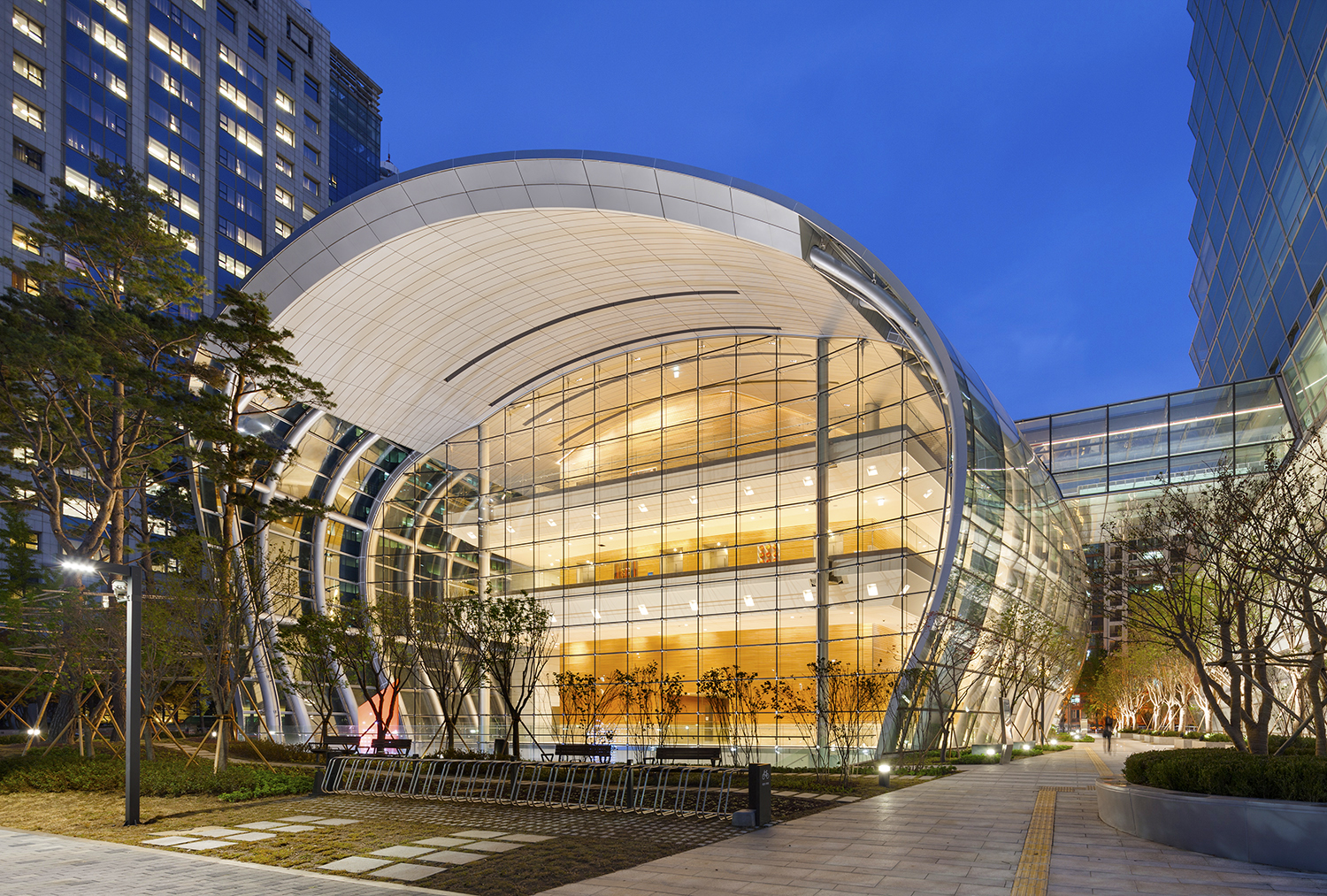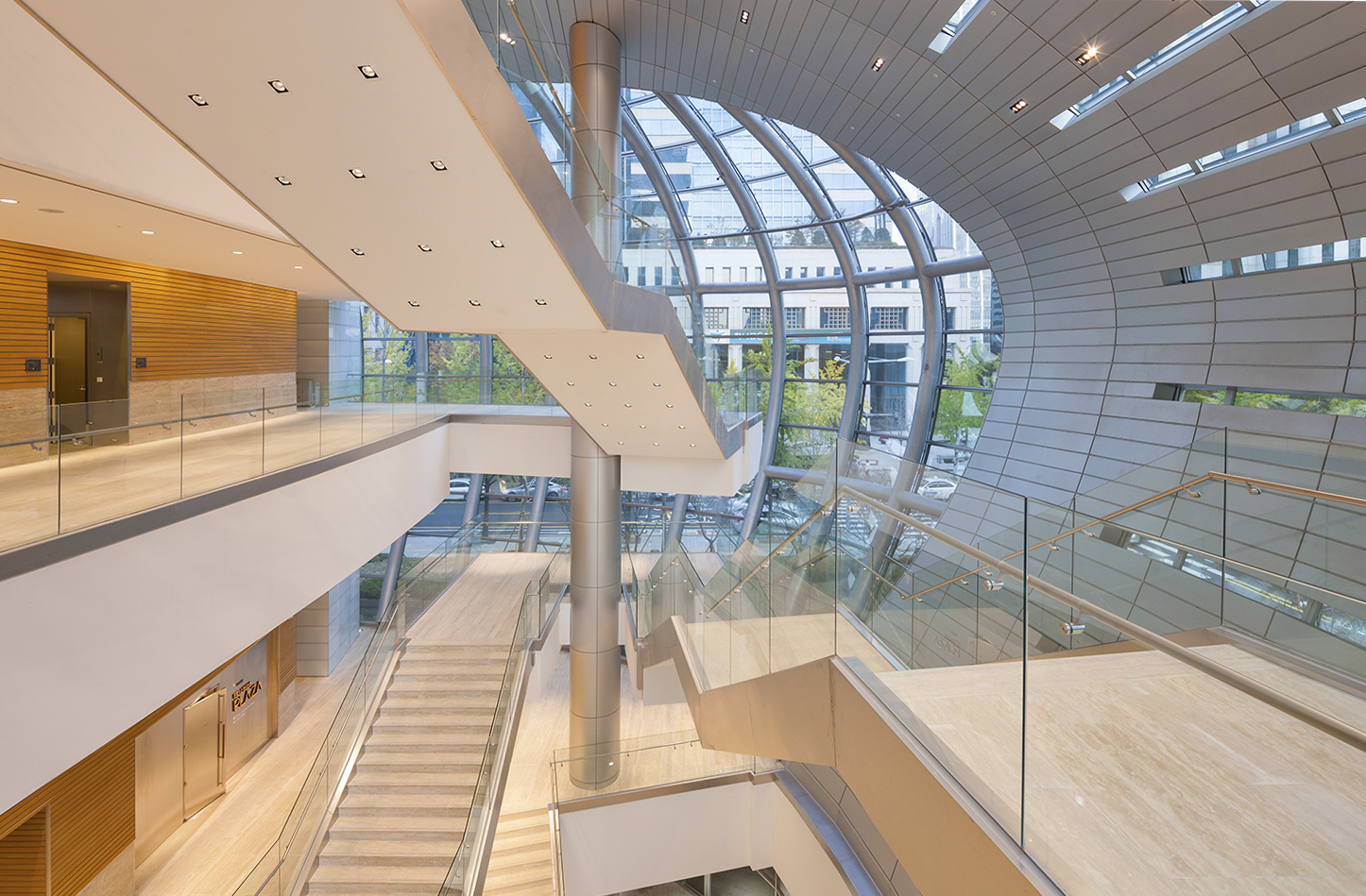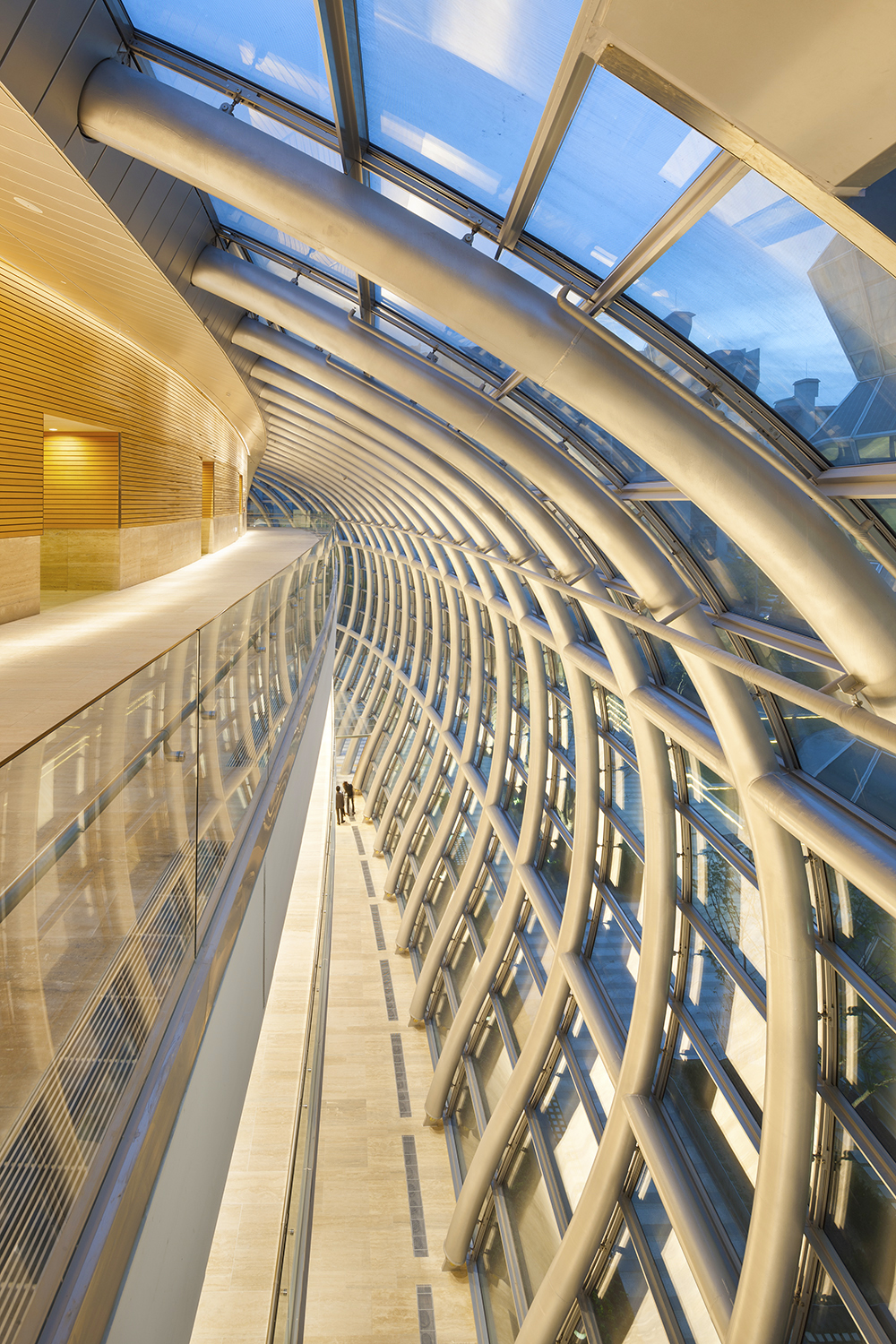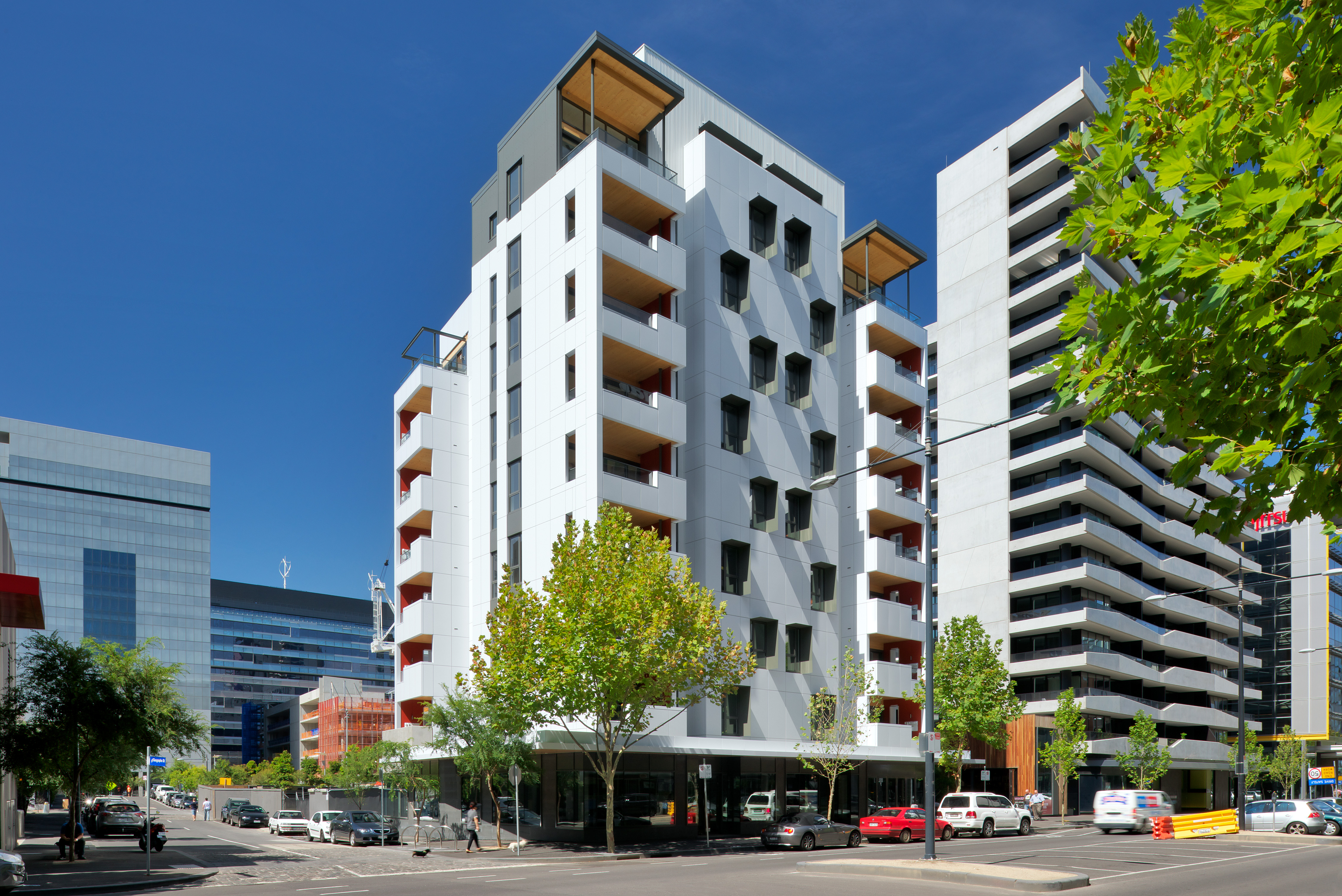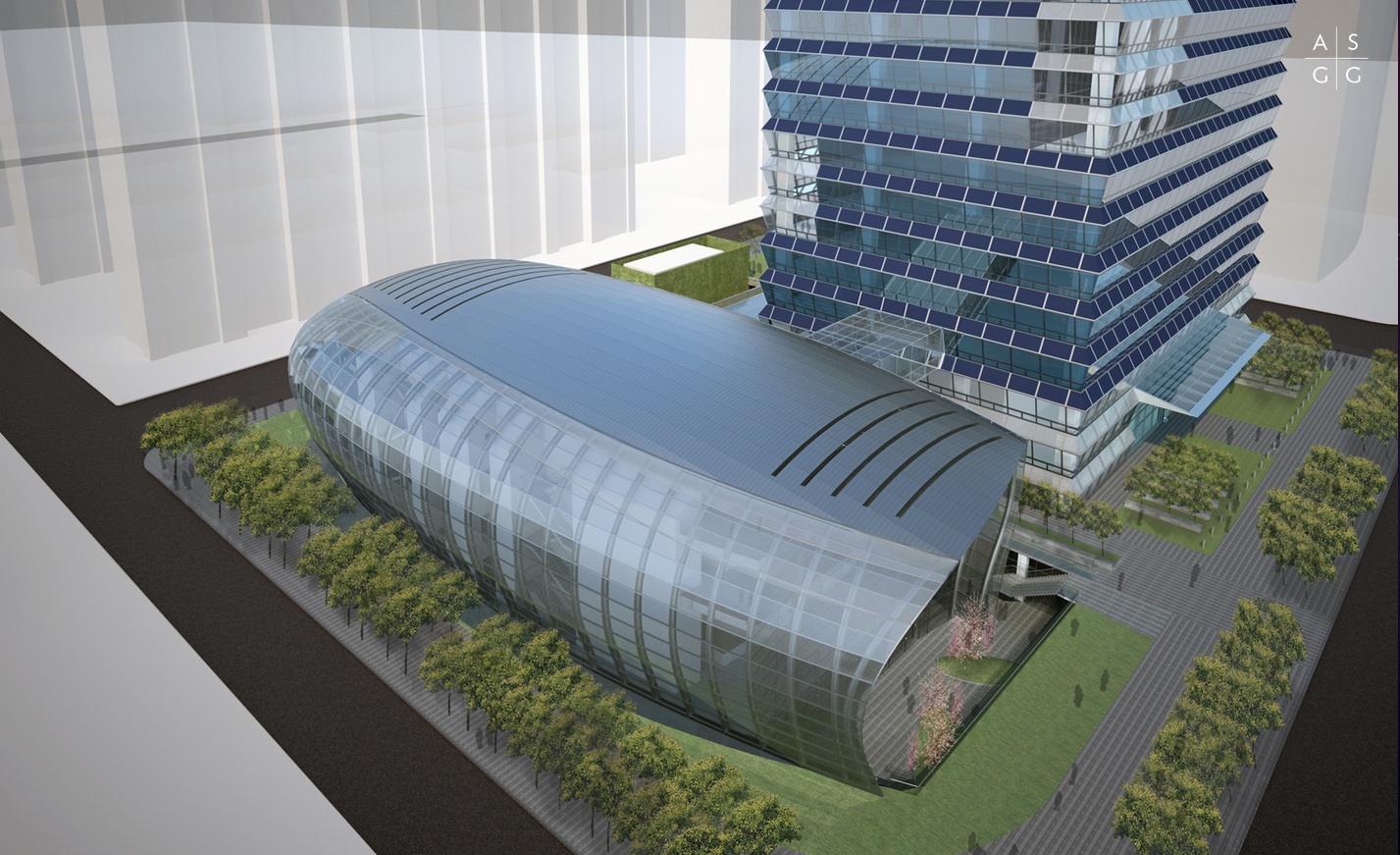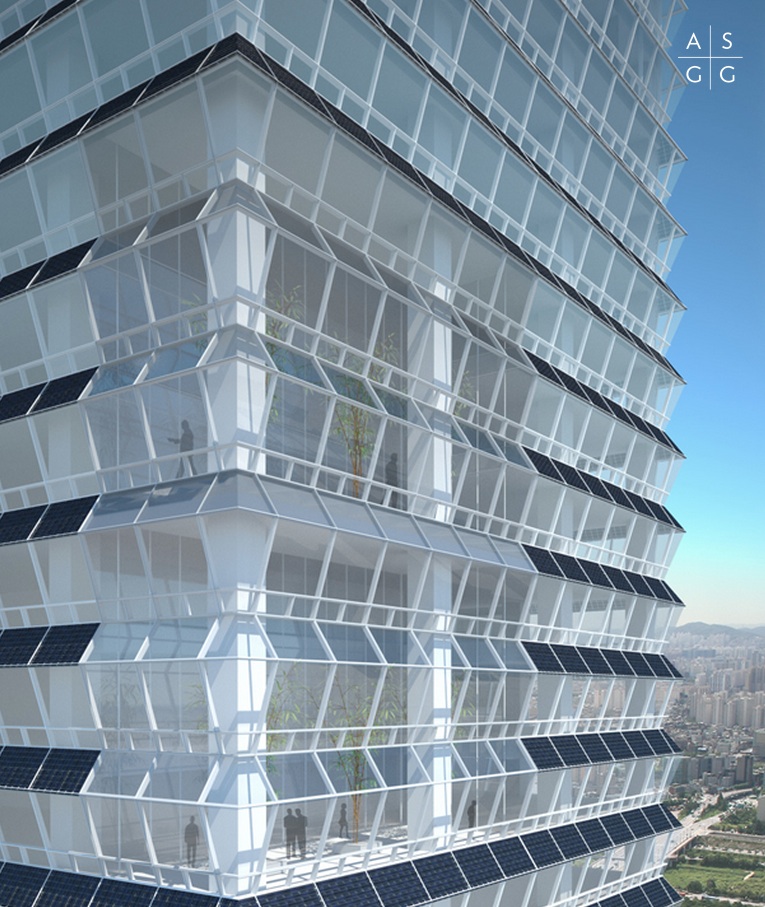Adrian Smith + Gordon Gill Architecture (AS+GG) has announced the public opening of the new head offices for the Federation of Korean Industries (FKI).
"FKI Headquarters represents a new exterior wall typology that both integrates significant quantities of photo voltaic panels into the exterior wall and slopes the vision glass at an angle that generates self-shading and allowing less reflective glass to be used. The result is a unique folded exterior texture that is both purposeful and distinctive" says Adrian Smith.
The 50-story, 240-meter tower features an innovative exterior wall, designed specifically for the project. The building’s unique skin will help reduce the internal heating and cooling loads and collect energy through photovoltaic panels that are integrated into the spandrel areas of the southwest and northwest facades.
By angling the spandrel panels 30 degrees upward toward the sun, the design is able to maximize the amount of energy collected, generating enough power to help maintain the electrical systems throughout the tower core and the office spaces.
Just below the spandrel panels, the vision panels are angled 15 degrees downward toward the ground, minimizing the amount of direct sun radiation and glare. Together, the alternating spandrel and vision panels create a dynamically rippled façade that is both environmentally progressive and visually striking, giving the tower a unique architectural presence on the skyline.
The interior of the building takes advantage of the floor to ceiling windows of the exterior wall, offering an abundance of natural light to office spaces and corridors as well as extensive views of neighboring Yeoido Park, the Han River and the surrounding city of Seoul.
The completed tower includes several indoor garden/atrium spaces that enhance the workplace environment with natural elements of wood, bamboo and other native plants. The roof top atrium space features more custom photovoltaic panels.
“The ideal angle of the PV panel placement on the roof was studied in detail,” says Gordon Gill, “In a relatively unconfined space, PVs would normally be angled upward at 30 degrees but within the limited area of the roof, we determined that a 10-degree angle allowed for more panels to be installed closer together, minimizing the effect of the panels casting shadows on each other and ultimately producing more solar energy for the building.”
AS+GG Partner Robert Forest adds, “The tower features one of the most efficient solar electric facades in the world in a cost effective manner, proactively expanding Korea's goal of advancing renewable energy generation in buildings.”
The sculptural podium piece is located on central Yeoi-Dae-Ro Avenue, further promoting the tower’s public identity. The podium amenities, available for public use include a banquet hall, central restaurant and conference center.
The podium will be available for international conferences with a large first floor banquet hall and smaller conference rooms of various sizes located on the second and third floors. The multi-purpose nature of the podium is another way that the FKI building will become a new city centerpiece for Seoul.
AS+GG collaborated with the engineering firms Thornton Tomasetti and Environmental Systems Design, as well as the local firm Chang-Jo Architects, on the project.
The Building Team included:
Adrian Smith + Gordon Gill Architecture (AS+GG) is dedicated to the design of high-performance architecture in a wide range of typology and scale, from low- and mid-rise residential, commercial and cultural buildings to mixed-use supertall towers and new cities. The office uses a holistic, integrated design approach that explores symbiotic relationships with the natural environment. AS+GG is currently working on projects for clients in the United Arab Emirates, Saudi Arabia, China, and the United States. The partnership was founded in 2006 by Adrian Smith, Gordon Gill and Robert Forest. For more information, please visit www.smithgill.com.
Thornton Tomasetti provides engineering services to clients worldwide on projects of all sizes and complexity. Thornton Tomasetti is responsible for the structural design of some of the world’s tallest buildings, including the Petronas Towers, Taipei 101, Ping An International Finance Center in China and Federation Tower in Russia. The firm is committed to creating the best structural solutions through technical ingenuity, pursuit of excellence and responsiveness to client needs. Thornton Tomasetti has offices across the United States and in Asia, Europe and the Middle East. For more information, please visit www.ThorntonTomasetti.com.
Environmental Systems Design, Inc. (ESD) has provided engineering design solutions on thousands of buildings in the United States and throughout the world. With over 220 engineering and design professionals, ESD is one of the largest consulting engineering firms in the Midwest. ESD offers consulting engineering design services in mechanical, electrical, plumbing, fire protection, LEED, sustainable design, commissioning, and technology. ESD supports a diverse range of markets including commercial, health and science, education, mission critical, residential, assembly, cultural, theaters, energy plants, transportation and international. For more information, please visit www.esdesign.com.
Since 1984, Chang-jo Architects has been one of the leading professional architectural firms in Korea, providing total and comprehensive design services in architectural design, urban planning, landscape design, engineering and construction management. By possessing such an integrated core of services, they deliver to their clients the best service and value through intelligent design and advanced technology. Learn more about Chang-jo Architects at www.cja.co.kr.
Related Stories
Architects | May 2, 2024
Emerging considerations in inclusive design
Design elements that consider a diverse population of users make lives better. When it comes to wayfinding, some factors will remain consistent—including accessibility and legibility.
K-12 Schools | Apr 30, 2024
Fully electric Oregon elementary school aims for resilience with microgrid design
The River Grove Elementary School in Oregon was designed for net-zero carbon and resiliency to seismic events, storms, and wildfire. The roughly 82,000-sf school in a Portland suburb will feature a microgrid—a small-scale power grid that operates independently from the area’s electric grid.
AEC Tech | Apr 30, 2024
Lack of organizational readiness is biggest hurdle to artificial intelligence adoption
Managers of companies in the industrial sector, including construction, have bought the hype of artificial intelligence (AI) as a transformative technology, but their organizations are not ready to realize its promise, according to research from IFS, a global cloud enterprise software company. An IFS survey of 1,700 senior decision-makers found that 84% of executives anticipate massive organizational benefits from AI.
Codes and Standards | Apr 30, 2024
Updated document details methods of testing fenestration for exterior walls
The Fenestration and Glazing Industry Alliance (FGIA) updated a document serving a recommended practice for determining test methodology for laboratory and field testing of exterior wall systems. The document pertains to products covered by an AAMA standard such as curtain walls, storefronts, window walls, and sloped glazing. AAMA 501-24, Methods of Test for Exterior Walls was last updated in 2015.
MFPRO+ News | Apr 29, 2024
World’s largest 3D printer could create entire neighborhoods
The University of Maine recently unveiled the world’s largest 3D printer said to be able to create entire neighborhoods. The machine is four times larger than a preceding model that was first tested in 2019. The older model was used to create a 600 sf single-family home made of recyclable wood fiber and bio-resin materials.
K-12 Schools | Apr 29, 2024
Tomorrow's classrooms: Designing schools for the digital age
In a world where technology’s rapid pace has reshaped how we live, work, and communicate, it should be no surprise that it’s also changing the PreK-12 education landscape.
Adaptive Reuse | Apr 29, 2024
6 characteristics of a successful adaptive reuse conversion
In the continuous battle against housing shortages and the surplus of vacant buildings, developers are turning their attention to the viability of adaptive reuse for their properties.
AEC Innovators | Apr 26, 2024
National Institute of Building Sciences announces Building Innovation 2024 schedule
The National Institute of Building Sciences is hosting its annual Building Innovation conference, May 22-24 at the Capital Hilton in Washington, D.C. BI2024 brings together everyone who impacts the built environment: government agencies, contractors, the private sector, architects, scientists, and more.
Mass Timber | Apr 25, 2024
Bjarke Ingels Group designs a mass timber cube structure for the University of Kansas
Bjarke Ingels Group (BIG) and executive architect BNIM have unveiled their design for a new mass timber cube structure called the Makers’ KUbe for the University of Kansas School of Architecture & Design. A six-story, 50,000-sf building for learning and collaboration, the light-filled KUbe will house studio and teaching space, 3D-printing and robotic labs, and a ground-level cafe, all organized around a central core.
Sports and Recreational Facilities | Apr 25, 2024
How pools can positively affect communities
Clark Nexsen senior architects Jennifer Heintz and Dorothea Schulz discuss how pools can create jobs, break down barriers, and create opportunities within communities.


